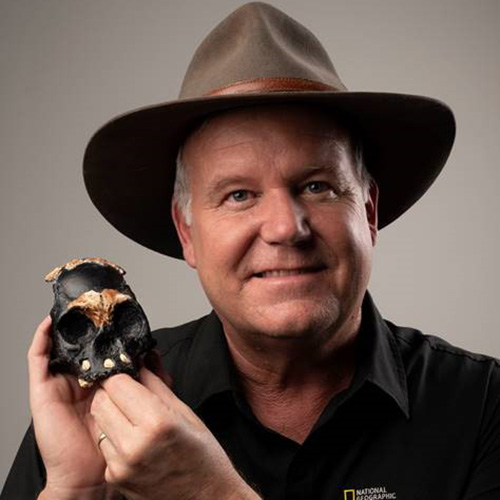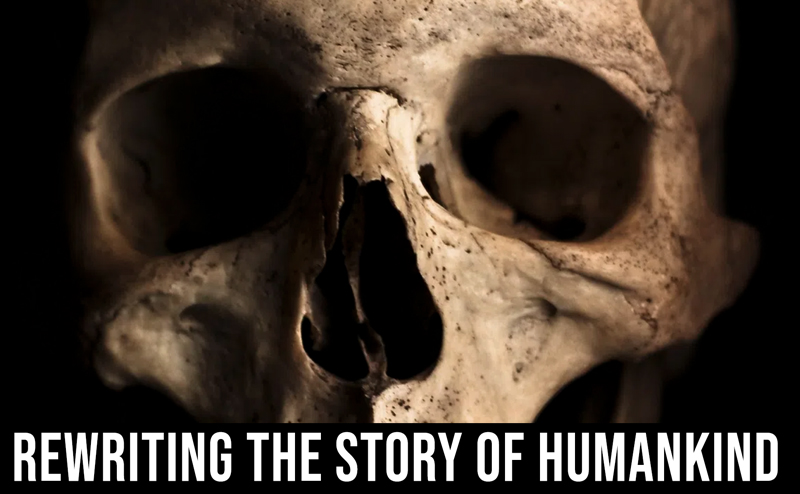Lee Berger

Professor Lee Berger is an award-winning researcher, explorer, author, palaeoanthropologist, and speaker. His explorations into human origins on the African continent, Asia, and Micronesia for the past two and a half decades have resulted in many new discoveries, including the most complete early hominin fossils ever discovered that belong to a new species of early human ancestor (Australopithecus sediba), and to another species (Homo naledi) that is closely related to modern-day humans. His contributions to exploration sciences have also resulted in advances in the field of applied exploration methods and the application of technology to exploration, excavation, and discovery. Berger is a fellow of the Royal Society of South Africa (FRSSAf) and a fellow of the Academy of Sciences of South Africa (ASSAf). Berger received a B.A. in anthropology from Georgia Southern University, his Ph.D. in paleoanthropology from the University of the Witwatersrand and became a postdoctoral research fellow in the university’s department of anatomy and human biology.







 Share
Share













